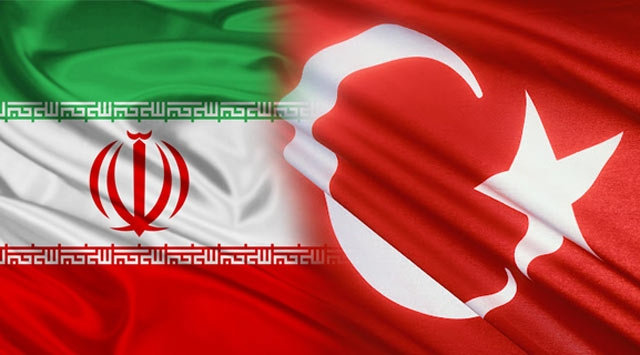Maintaining Economic Relations Aside from Political Differences

Bahram Amir Ahmadian: It seems that Iran's oil exports and Turkey's oil imports are conducted through international waters and the oil ships' insurance is very important. Therefore, if insurance companies consider limitations for these ships, it is natural that certain problems will arise. Perhaps if Iran had planned, during the past years, to export its oil to some neighboring countries through pipelines, we would not be faced with the problems that exist today due to oil sanctions and insurance limitations.
I believe that the reduction of Turkey's oil imports from Iran is mostly due to its transfer method, where Turkey should receive the oil through international waters. That is why insurance limitations may not seem important, but in practice and in the process of imports, opening credits and legal and financial issues of exports will be confronted with different problems. Iran has also declared that if Turkey cannot make transactions through international banks, it is ready to receive Liras from this country, so that they bring Liras to Iran and open credits and be able to purchase goods from Turkey in Liras as well. This solution is a positive step. Iran has proposed the same measure to India and China, that is to receive Rupees from India and Yuan from china.
ID: To what extent has the issue of Syria had impacts on Iran and Turkey relations?
BA: Economic relations between Turkey and Iran have always been very close since decades ago and have continued to this day. The reason is that Iran is considered a good market for raw materials and export goods and Turkey is also a big market for Iran. The volume of Iran and Turkey’s trade dealings has grown considerably following the Iran-Iraq war.
Turkey's private sector is very active. For example, Istanbul's Chamber of Commerce is very powerful. Turkey's foreign trade with Iran is also done through the private sector and the private sector can act independently. Therefore, if problems are created between governments, businessmen do not pay attention to political issues, hence, if there are differences between Iran and Turkey with regard to the issue of Syria, they might have much less impact on economic relations. It is extremely unlikely that, due to these differences, Turkey would lose its market in Iran or the large sums of money it receives by attracting Iranian tourists.
It must also be mentioned that Iran and Turkey have enjoyed good relations for many years, and there might have been differences during these past years as well, but they have never turned into violence.
In the end, it must be said that Turkey is a country which plays an important role in Syria and it has borders with this country. Therefore, Turkey’s view of Syria cannot be compared with the view we have of this country, one which regards Syria as a strategic ally and as a country that aids the resistance front.
ID: What you mentioned were the economic aspects. Can we not say that, due to Iran’s position in the international society and especially because of the problems Iran has with the West, Turkey also changes its relations based on these issues?
BA: We must look at Turkey as a country which has been a NATO member since the early 1950s, meaning that it has western structure, especially from a military point of view. On one hand, Turkey is connected to Europe and it is a bordering neighbor of the EU; on the other hand, it is a neighbor of the Balkans, the Mediterranean Sea, the Black Sea, and the Middle East. Therefore, Turkey is a multi-faceted country and we must not expect Turkey to only consider Iran as its neighbor. Turkey and Iran are only common members of the OIC and ECO, but they are more importantly neighbors.
Because of the common border the two countries have and due to their large volume of economic and cultural dealings, Iran’s political issues and differences with the West, and even its differences with Turkey itself over Syria, will not affect Iran-Turkey relations.
Turkey has also always considered Iran as a powerful country in the region, supported Iran’s access to nuclear technology, and participated in the Tehran Conference for transfer of fuel. All of these indicate that Turkey is not a country which can be ignored. Therefore, Turkey has a high position in Iran’s foreign policy.
The Muslim nations of Iran and Turkey are never willing to damage these relations because of a third factor, unless Turkey transparently decides to threaten Iran’s interests in the region or in national borders. In that case, Iran will not accept it and will fight with all its strength against it. It is due to this reason that the media plays a very important role in clarifying the issue that Iran and Turkey enjoy very close relations and commonalities. Meanwhile, if certain problems exist, they should not be exaggerated.

